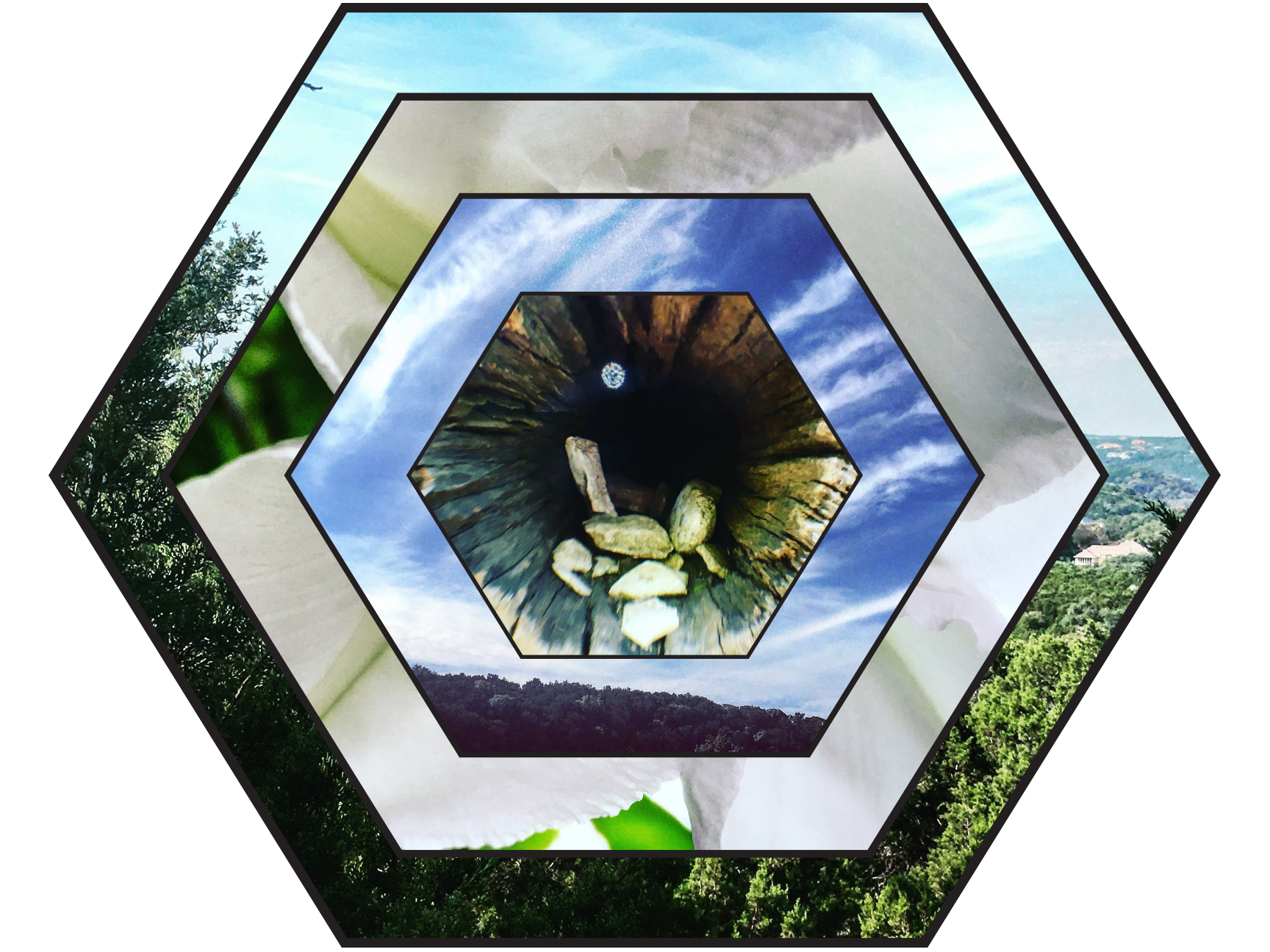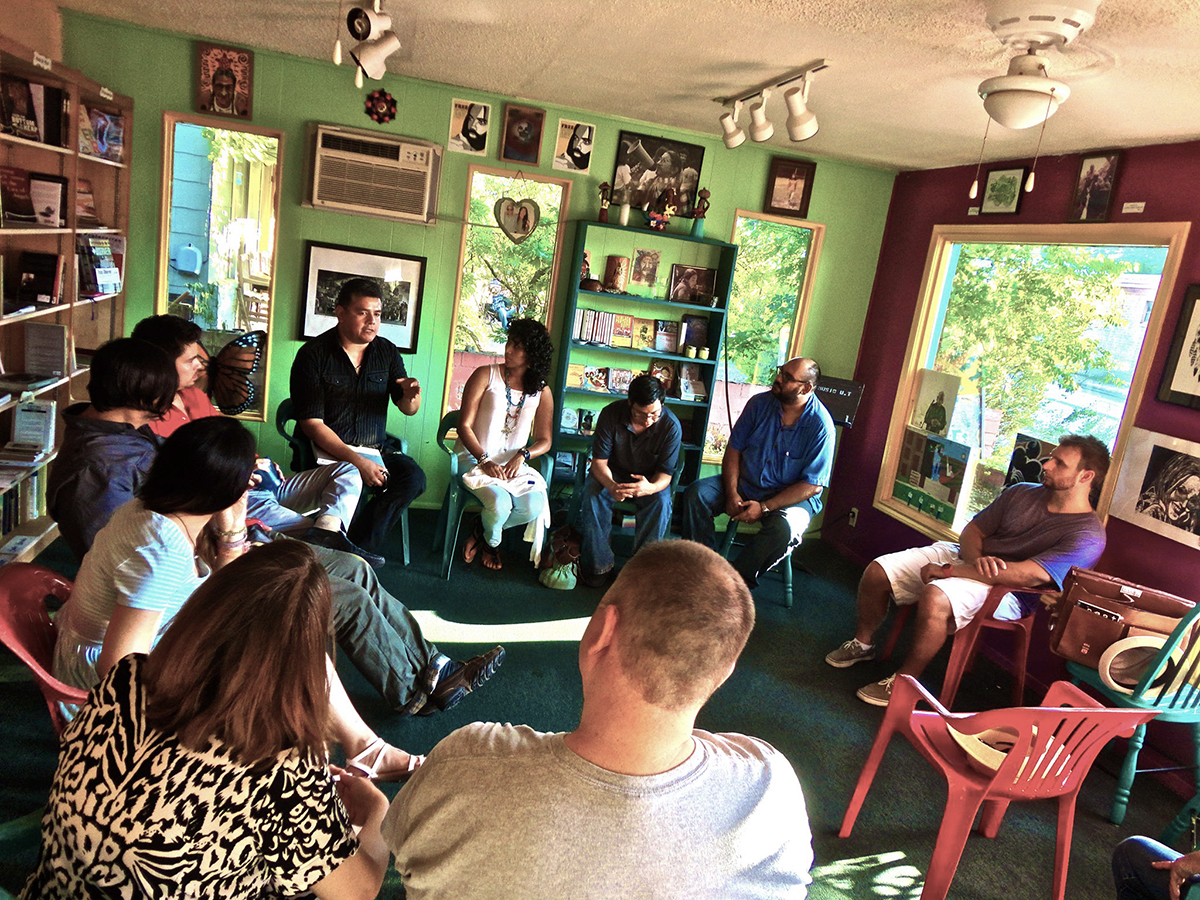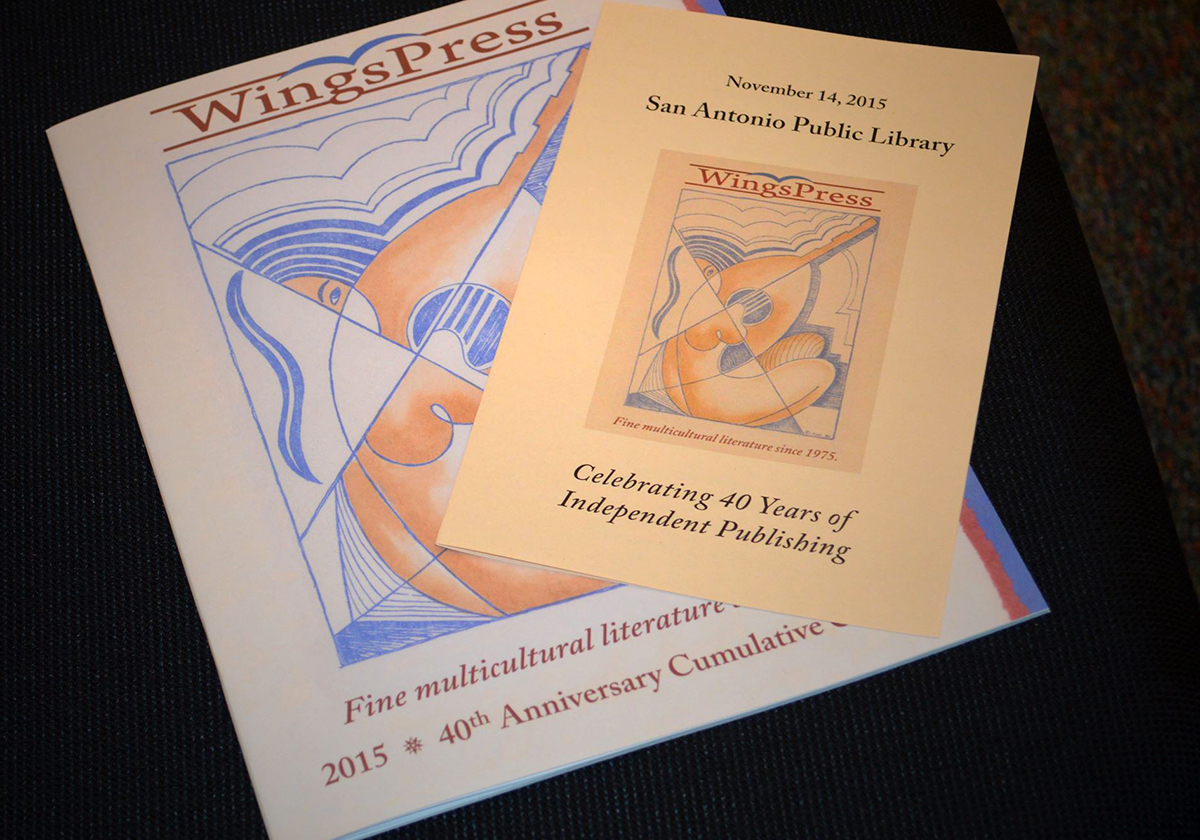Ask A Librarian GRA Mitch Cota curated an exciting exhibit for the PCL Scholars Commons and Poetry Center called “Lone Star ImPRESSions: A History of Small Press in Texas.” This exhibit is the fruit of many months’ labor and the culmination of Mitch’s iSchool Capstone project, and features books published by small presses in Austin, Houston and San Antonio.
When I began my degree in information studies, one of the many reasons that drove my decision was the tension between libraries and the corporate publishing and copyright model. I do not believe that anyone really enjoys having materials chosen for them or having materials withheld from them while pursuing research and education. While literature has its own unique set of complications between authors rights and non-traditional content, it too is affected by this tension. My project to examine small press was an exploration into the individuals who are fighting for the right to publish content they view as valuable and different. Texas small press is born out of a denial by large publishing houses to acknowledge underrepresented voices and content that defies easy categorization.
We are getting ahead of ourselves though. Small press is a term that often inspires a multitude of definitions in everyone’s mind. For the exhibit, small press was defined as a press that is truly home grown. Some of these presses began in Texas, while others started somewhere else and now call Texas home. There are presses in the exhibit with a more historical presence and others that have begun in the last five years. They all share one core goal, to publish content that is different and voices they believe deserve to be heard.
Historically, presses like Wings, Thorp Springs, and Slough were created in an effort to publish content that each saw as pushing against the large publishing house model. Many of the materials utilized in the research of the exhibit are located right here on campus. The Dolph Briscoe Center for American History has a portion of the archival collection of Joanne Whitebird, the original owner of Wings press. The Harry Ransom Center has the entire archival collection of Thorp Springs press. While Slough and Wings are still currently publishing work, Thorp Springs has now gone defunct with the loss of their original creator and editor John Paul Foreman. Each of these presses were created in order to publish specific work, whether that be female authors, Southwest/Texas authors, or authors of color. The small presses of today have broadened their approach to include voices from queer and trans authors. Without someone focusing on producing this type of content, there would be far less work to represent these different communities.
The PCL collections serve to preserve these materials for generations to come. One of the largest hurdles small publishing faces are financial constraints. In conducting interviews and combing through archives, I found that many of the papers and materials from different presses were never preserved. Work was lost in time. The University of Texas Poetry Center and the general collection here at the PCL now serve as a medium to protect these small presses from fading into history. Not only do these materials represent unique voices, they also serve our students in critical theory research in literature. Whether they are looking through a historic, feminist, racial, or queer lens, these collections here at the PCL serve to not only preserve the presses, but provide examples for beliefs and ideologies of the times in which they are situated.
The exhibit — Lone Star imPRESSions: A History of Small Press in Texas — also examines different authors situated throughout the history of small press. One of these authors, a poet actually, worked right here at the PCL and has work that speaks to his time while employed here. Some voices like Jim Trainer and Andrew Hilbert represent fresh voices from today who refuse to play by the rules. A few of these authors own their own small presses while publishing their work through other small presses. The content produced by authors and presses alike includes multiple different genres, mediums, and formats. Many of the items are handcrafted with hand sewn bindings. When you purchase an item from a small press, you are getting an item that is one of a kind.
So, come visit! The exhibit has been extended into January, and we have items in both the Scholars Commons and University of Texas Poetry Center.
Besides what is on display, there are items in the PCL collection to read and check out. I have also taken the liberty of producing an exhibit catalog that has a more extensive examination of each press and author. One of the other great services this exhibit provides is a link in the catalog to each small press that is accepting open submissions. Students and faculty looking to publish work can review each press and see which one would best suit the content they have to offer.
Texas small press is home grown from the sweat and tears of the hard-working editors that believed in the content they were producing. Come visit the PCL and see the fruits of their hard work, support small press but furthermore support the idea that large publishing houses do not have the right to choose content for everyone.





